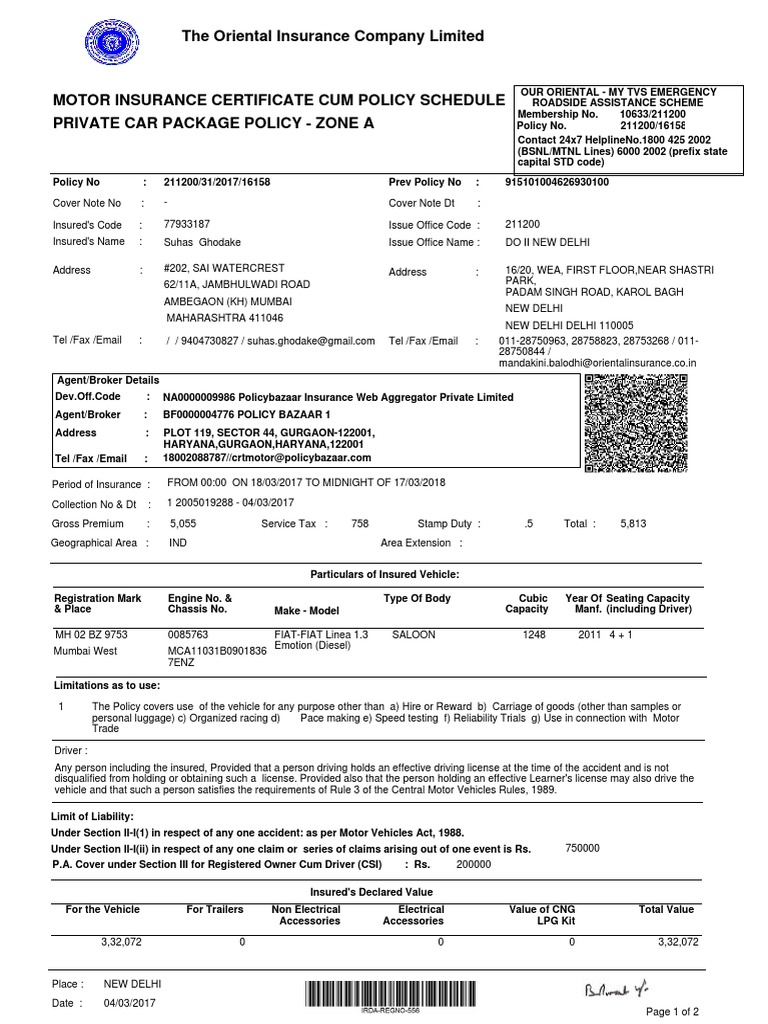Car insurance is a legal requirement for driving in the UK, providing financial protection in case of accidents or damages. But what happens if your car insurance company decides to cancel your policy? Can they simply drop you, and what are your rights in such a situation? This article explores the circumstances under which a car insurance company can cancel your policy in the UK, your rights as a consumer, and steps you can take to protect yourself.
Understanding Car Insurance Policies in the UK
A car insurance policy is a contract between you (the insured) and the insurance company (the insurer). In exchange for regular payments (premiums), the insurer agrees to cover specific costs if something goes wrong, as outlined in the policy. These policies differ significantly in coverage, cost, and terms, making it crucial to carefully compare your options. It’s equally important to understand what is covered, what is excluded, and your responsibilities, such as providing accurate information when taking out the policy. The Financial Conduct Authority (FCA) regulates insurance companies, ensuring they adhere to strict rules designed to protect consumers.
When Can a Car Insurance Company Cancel Your Policy?

While car insurance companies cannot arbitrarily cancel your policy, there are legitimate reasons why they might do so. Understanding these reasons is crucial for maintaining continuous coverage and avoiding potential legal issues. Some common reasons include:
Non-Payment of Premiums: Failing to pay your premiums is a primary reason for cancellation. Insurers require timely payments to keep your policy active.
Misrepresentation or Fraud: Providing false or inaccurate information when applying for insurance can lead to cancellation. This includes failing to disclose previous accidents, convictions, or modifications to your vehicle. The Consumer Insurance (Disclosure and Representations) Act 2012 emphasizes the importance of taking reasonable care not to misrepresent facts.
License Suspension or Revocation: If your driver’s license is suspended or revoked, your insurance company may cancel your policy, as driving without a valid license is illegal and increases the risk.
Too Many Claims: Filing multiple claims within a short period can lead insurers to believe you are a high-risk driver, potentially resulting in policy cancellation.
Vehicle Modifications Not Disclosed: Making modifications to your car, such as adding a roof box, tow bar, or window tints, without informing your insurer can lead to cancellation. These modifications can increase the risk of accidents or damage.
Breach of Policy Terms: Violating the terms and conditions of your insurance policy, such as using your vehicle for purposes not covered by the policy (e.g., using a personal vehicle for commercial purposes without appropriate coverage), can result in cancellation.
Your Rights When a Car Insurance Company Cancels Your Policy

Even if an insurance company has valid reasons to cancel your policy, you have certain rights that must be respected. These rights ensure fair treatment and provide avenues for recourse if you believe the cancellation is unjust.
Notice of Cancellation: Insurers are required to provide you with written notice of cancellation, typically at least seven days in advance. This notice must explain the reason for the cancellation and the effective date.
Refund of Unused Premiums: If your policy is canceled before the end of its term, you are generally entitled to a refund of any unused premiums, minus any applicable administrative fees or cancellation charges.
Right to Appeal: If you believe the cancellation is unfair or unjustified, you have the right to appeal the decision. Start by contacting your insurer to discuss your concerns. If you are not satisfied with their response, you can escalate your complaint to the Financial Ombudsman Service (FOS).
Fair Treatment: Insurance companies must treat all customers fairly and without discrimination. They cannot refuse you cover, charge you higher premiums, or offer you different terms based on protected characteristics such as race, gender, disability, age, or sexual orientation.
How to Avoid Policy Cancellation

Preventing car insurance cancellation is often possible by taking proactive steps to maintain a good standing with your insurer. Here are some tips to help you avoid policy cancellation:
Pay Premiums on Time: Set up automatic payments to ensure your premiums are paid on time.
Provide Accurate Information: Be honest and accurate when applying for insurance. Disclose all relevant information, including previous accidents, convictions, and vehicle modifications.
Inform Your Insurer of Changes: Notify your insurer of any changes to your vehicle, driving habits, or address.
Drive Safely: Avoid accidents and traffic violations that could lead to claims or license suspension.
Review Your Policy Regularly: Understand the terms and conditions of your policy, including what is covered and what is excluded.
What to Do If Your Policy Is Canceled

If your car insurance policy is canceled, it’s essential to take immediate steps to secure new coverage and avoid driving uninsured, which is illegal and can lead to severe penalties.
Shop Around for New Insurance: Compare quotes from multiple insurers to find the best coverage at a competitive price. Be sure to disclose that your previous policy was canceled, as this may affect your rates.
Consider a Specialist Insurer: If you are considered a high-risk driver due to previous claims or convictions, you may need to seek coverage from a specialist insurer that caters to high-risk individuals.
Address the Reason for Cancellation: If your policy was canceled due to non-payment or misrepresentation, take steps to rectify the situation. Pay any outstanding premiums or provide accurate information to your new insurer.
Seek Advice: If you are struggling to find affordable coverage, consider seeking advice from an insurance broker or consumer advocacy group.
The Role of the Financial Ombudsman Service (FOS)
The Financial Ombudsman Service (FOS) is an independent body that resolves disputes between consumers and financial services providers, including insurance companies. If you have a complaint about your car insurance policy cancellation that you cannot resolve with your insurer, you can escalate your case to the FOS. The FOS will review your case impartially and make a decision that is binding on the insurer. This service is free to consumers and provides a valuable avenue for resolving disputes.
In conclusion, while car insurance companies can cancel your policy under certain circumstances, you have rights as a consumer. Understanding these rights and taking proactive steps to maintain a good standing with your insurer can help you avoid policy cancellation and ensure continuous coverage.





Leave a Reply